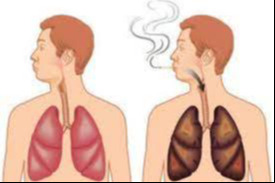
The second forum titled “Civil Society Leadership in Tuberculosis Eradication in Mongolia” was held, focusing on the critical themes of public participation, human rights, and gender equality. Organized collaboratively by the Mongolian anti-Tuberculosis Coalition and the Tuberculosis Professional Branch Council of the Ministry of Health, the forum brought together a diverse group of stakeholders who underscored the pressing nature of tuberculosis as a serious public health concern in the country.
Participants highlighted the alarming reality that tuberculosis continues to pose a significant threat to public health in Mongolia. A key issue raised was the impact of discrimination and stigmatization on the spread of the disease. Many speakers pointed out that individuals suffering from tuberculosis often face bias and discrimination within healthcare facilities, which is a matter that demands urgent attention. This persistent stigma not only deters people from seeking treatment but also contributes to the disease’s proliferation.
Moreover, it was noted that approximately 70 percent of the families of those diagnosed with tuberculosis experience financial difficulties. Last year, nearly 2,360 cases of tuberculosis were reported nationwide, a statistic that further emphasizes the need for collective action to combat this public health crisis.
Dr. Ts.Bazarragchaa, a leading researcher and project director for the Mongolian anti-Tuberculosis Coalition, emphasized the global ambition to eradicate tuberculosis by 2030. He stated, “Our country is committed to achieving this goal. The participation of civil society organizations is crucial, in addition to the efforts of the health sector, to reduce the incidence of tuberculosis.” He pointed out that Mongolia is among the 30 countries leading in tuberculosis infection rates worldwide, highlighting the urgent need for visionary policies and funding to reduce the spread of this disease.
The forum participants stressed the importance of strategically planning collaborative efforts between governmental and civil society organizations to effectively address tuberculosis. In particular, they underscored the necessity of implementing measures to prevent discrimination against individuals affected by the disease.
The forum served as a vital platform for raising awareness and fostering dialogue among stakeholders, reinforcing the collective commitment to combat tuberculosis in Mongolia. Through united efforts, it is hoped that the stigma surrounding the disease can be diminished, ensuring that affected individuals receive the care and support they need without fear of discrimination.